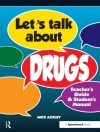21st century higher education faces immense changes—from the broad impact of globalization to the implications of massification and the growth of enrollments worldwide. The International Imperative in Higher Education focuses on most of the central elements affecting universities worldwide. Included among the themes analyzed are global issues such as corruption, the continuing impact of the brain drain and the phenomenon of brain exchange, the role of English in internationalization, changes in the environment for publishing and knowledge distribution, and academic freedom. The specific elements of internationalization, such as growing commercialization, and the role of agents and recruiters as a part of global student flows are considered. The role of the academic profession in a rapidly changing university environment is also discussed. Special attention is paid to China and India, the world’s two largest academic systems, and the specific challenges faced by them. This book consists of 40 concise essays analyzing key aspects of global higher education. They bring together broad analysis and an underlying concern for the public good aspects of higher education in a comparative and international framework.
Jadual kandungan
preface; introduction; part 1; globalization and its implications; 1 The Imperial Tongue: English as the Dominating Academic Language; 2 Globalization and Forces for Change in Higher Education; 3 The Complexities of Global Engagement; part 2; global issues; 4 Corruption: Challenge to Internationalization; 5 Access Means Inequality; 6 What International Advice Do Universities Need? (with Jamil Salmi); 7 The Perils of Commercialism: Australia’s Example (with Anthony Welch); 8 Reforming Higher Education in the Middle East—and Elsewhere; 9 The “Subprime” Market and International Higher Education; part 3; mobility, brain drain, and brain exchange?; 10 Brain Drain or Brain Exchange?; 11 The Complexities of 21st-Century Brain Exchange; 12 Another Week, Another Scandal: Immigration Dilemmas and Political Confusion (with Liz Reisberg); 13 Getting Graduates to Go Home: Not So Easy (with Wanhua Ma); part 4; the academic profession; 14 Academic Salaries and Contracts: What Do We Know? (with Iván F. Pacheco); 15 The Intricacies of Academic Remuneration; 16 Academic Career Structures: Bad Ideas (with Christine Musselin); 17 Academic Salaries, Academic Corruption, and the Academic Career; part 5; rankings and world-class; 18 The Overuse of Rankings; 19 Ranking Season Is Here; 20 Hong Kong’s Academic Advantage (with Gerard A. Postiglione); 21 The Challenges of Building a World-Class University: Lessons from Slovenia; part 6; branch campuses and franchising; 22 Is There a Future for Branch Campuses?; 23 Twinning and Branch Campuses: The Professorial Obstacle; 24 Franchising—the Mc Donaldization of Higher Education; part 7; knowledge distribution; 25 The Costs and Benefits of “Open Access”; 26 Anarchy, Commercialism, and “Publish or Perish” (with Brendan Rapple); part 8; agents and recruiters: a global dilemma; 27 The Ambiguities of Working with Third-Party Recruiters (with Liz Reisberg); 28 Agents and Third-Party Recruiters in International Higher Education; part9; academic freedom; 29 Academic Freedom: A Realistic Appraisal; 30 “Meddling” or “Steering”: The Politics of Academic Decision Making in Hong Kong (with Gerard A. Postiglione); PART 10; asian perspectives; 31 The Asian Higher Education Century?; 32 The Humanities and Social Sciences in Asia: Endangered Species?; part 11; china; 33 Chinese Challenges: Toward a Mature Academic System; 34 Chinese Higher Education in an Open-Door Era; part 12 india; 35 India’s Higher Education Challenges; 36 Getting Value for Money in Higher Education (with Pawan Agarwal); 37 India’s Effort to Join 21st-Century Higher Education (with N. Jayaram); 38 The Achilles Heel of India’s high-Tech Future: World-Class Universities; 39 Kerala: The Dilemmas of Equality in Higher Education (with Eldho Mathews); 40 India’s Open Door to Foreign Universities; about the author and coauthors.












